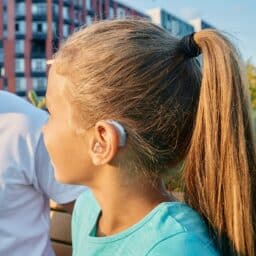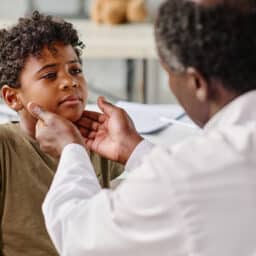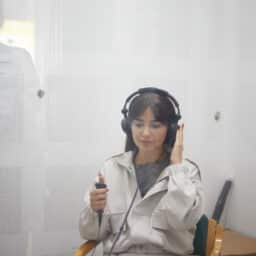Is My Sore Throat Caused by Allergies?

If you’ve been suffering from allergies this season and have been experiencing a sore throat, you may be wondering if they’re related. Over 30% of Americans have some type of allergy, and most of those suffer from seasonal allergies. Seasonal allergies prompt a wide variety of symptoms, including congestion, itchy and watery eyes, skin rashes,…
Hearing Health and Iron Deficiency: What You Need to Know

Exposure to loud noises and aging aren’t the only factors that can lead to hearing loss; our bodies are complicated, and sometimes underlying conditions in the body can lead to hearing loss. There have been a few recent studies exploring the connection between iron deficiency and hearing health: one study found that the odds of…
Getting Your Kids Ready for School When They Wear Hearing Aids

If your child is one of the 34 million children with hearing loss, you know that back-to-school season brings unique challenges. As a parent, you may be worried about how their time at school will be: will they be able to hear lessons in the classroom? Will they struggle socially? Will their hearing aids work…
How Smoking and Vaping Can Impact Your Hearing

Smoking tobacco is the biggest public health problem in the world, and now e-cigarettes, or vapes, are rising in popularity as well, especially among younger demographics. Many people are unaware of the correlation between smoking and hearing health. The connection between smoking traditional cigarettes and hearing loss is well-studied. While there’s currently less research out…
Why Your Throat Still Feels Weird After You Have a Cold

Getting over a cold is a relief, but lingering throat discomfort can leave you frustrated. If your throat still feels uncomfortable after other symptoms alleviate, there’s often a simple explanation. Here’s why it happens and how you can ease it. Reasons Your Throat Might Still Bother You Even after your cold clears, your throat may…
How To Manage Your Hearing Loss When You Live Alone

Living with hearing loss presents unique challenges, but with the right strategies and tools, it’s possible to create a more comfortable and supportive home environment. At South Valley Ear Nose & Throat, we are dedicated to helping you take steps to optimize their home life to ensure that hearing loss doesn’t hinder your daily life—particularly…
What to Know About Ear and Sinus Pressure

Sinus pressure and ear discomfort often go hand in hand. Whether you’re dealing with seasonal allergies, a cold or changes in altitude, it’s common to feel a sensation of fullness or pain in the ears when your sinuses are inflamed. Learn more about how to manage potential discomfort. How Are the Sinuses and Ears Connected?…
How to Prevent Cobblestone Throat During Allergy Season

Cobblestone throat is a condition that causes the back of the throat to appear bumpy and irritated, often resembling cobblestones. A potential cause can be allergies, so understanding the causes along with management options ca help prevent it. About Cobblestone Throat Cobblestone throat is not a medical condition but a physical change in the throat’s…
How the Utah Inversion Layer Impacts Sinuses

An inversion layer is a weather event in which a layer of warmer air forms over cooler air. This is a revers of what typically occurs. Inversions in Utah typically occur after a snowstorm and has impact on Air Quality Index levels, or AQI. This phenomenon, if impacting air quality, can consequently impact sinuses. Understanding…
The Importance of Regular Hearing Evaluations

Most of us have great routines around doctor and dentist visits, but may be neglecting our hearing care, even though many people’s hearing health could use attention. In fact, nearly 15% of American adults have reported some trouble hearing in the past year. Regular hearing evaluations can help you catch potential issues early and preserve…